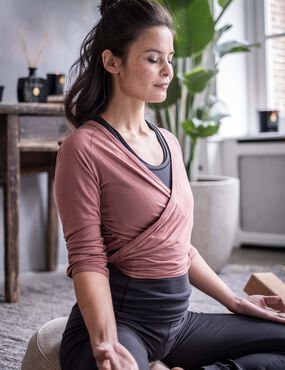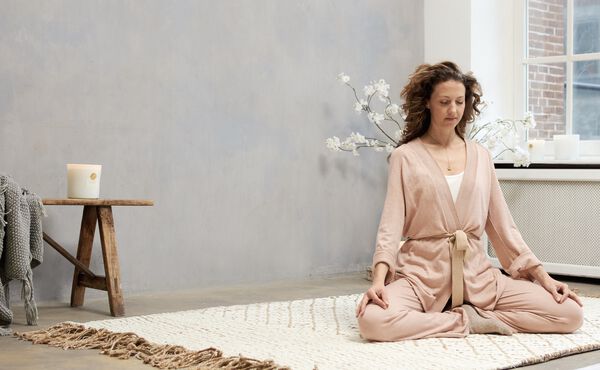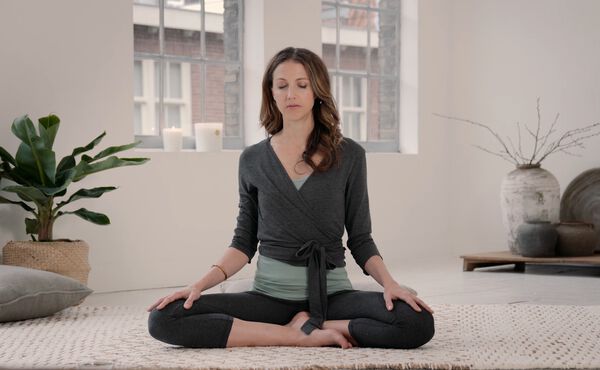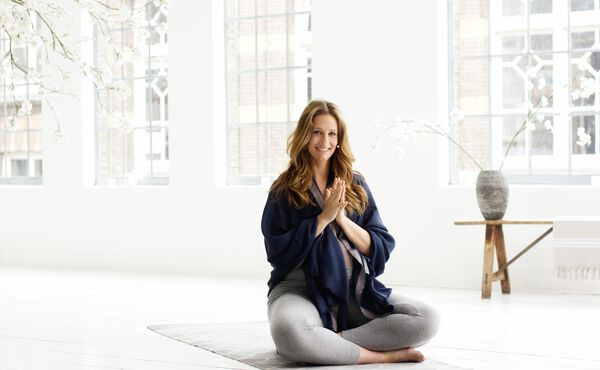When you hear the word “meditation”, what comes to mind? Chances are that you’re conjuring up images of incense, mantras and sitting still and doing nothing for huge blocks of time. But meditation encompasses so much more than that, and can be done in a variety of ways and places. In fact, there are few activities that don’t include an opportunity for some sort of meditation. Here are a few science-based reasons to practice meditation, and some ideas to get any beginner started.
WHY MEDITATE?
Meditation has lots of purposes. Contrary to what many people may think, the goal of meditation is not to empty the mind or to silence your thoughts. In fact, thoughts are a natural and essential part of meditation.
So what is the point of meditating, then? Essentially, meditation is exercise for the mind. It’s a way of training the mind to observe, focus and redirect attention. While trying to keep up with the demands of fast-paced modern life, it’s easy to get lost in the hustle and bustle of your job, your social life, your mile-long to-do list and your impatiently flickering smartphone notifications. Meditation helps you declutter your mind. By calmly and attentively observing your thoughts, emotions and bodily sensations, you train yourself to really connect with the present moment.
The benefits of practicing meditation are endless. And, in case you’re wondering, those benefits backed by science. Here are some of the incredible things that meditating can do for your body, mind and soul.
1. It reduces stress
Meditation eases stress and anxiety. Research shows that meditation practitioners have lower levels of cortisol, also known as the “stress hormone”.
2. It improves your sleep
Meditation is known to help regulate sleep patterns, which is extremely important for your physical health (and, not to forget, your mood).
3. It makes you smarter
Studies on the effects of meditating on the brain show that it can improve memory.
4. It's a natural painkiller
Forget painkillers and let meditation take away your headache instead, because practicing meditation can help with pain management and pain relief.
5. It slows down the aging process
Meditation has been found to have positive effects on the aging brain, slowing down age-related cognitive decline.
HOW TO GET STARTED
Science tells you why you should practice meditation, now let us tell you how to get started. Don’t worry—it's not complicated or time-consuming. Even two minutes of meditation per day is effective, and anyone can learn to do it. It doesn’t require talent, religious convictions, previous experience, hours of your day, fancy yoga pants or a special meditation cushion. All you really need is a few deep breaths. With the following tips, you’ll get off to a great start in no time.
Create a meditation space
Although you can meditate wherever and however you feel comfortable, it’s a good idea to create a meditation space in your home where you can retreat. Dedicate a place in your home where you feel relaxed and at peace, whether that’s a small corner of your bedroom, a window sill in your living room, or a guest room that could double as your personal sanctuary.
Your meditation space should be simple and serene without too much clutter, but some furnishings will help create a calming atmosphere. Use scented candles to turn your sacred space into a soothing haven for the mind and body. Plants, seashells or a water feature are also great, because natural objects are known to have a calming effect on us.
MAKE IT A DAILY THING
To enjoy the science-based positive effects of meditation, make it a daily habit. Start small, because it can be difficult to do long meditations at first. Adding a short meditation practice to your morning or evening is a good way to start. Stick with it and you’ll notice that meditating will quickly stop feeling like something you have to remind yourself to do. Once it’s part of your daily routine, clearing your mind with a meditation practice will feel as natural and easy as brushing your teeth in the morning or cleaning your face before bed.

Let us be your guide
Guided meditation is perfect for the beginner who is eager to try something new yet a bit daunted by doing it alone. That’s why we developed special guided meditations and shared them on our app to support and encourage you. With the ease and convenience of your smartphone (which is always close by, we know!) you can follow these practices anytime and anywhere.
There you have it: just a few suggestions on where to start when it comes to meditation. To discover even more kinds of meditation (including instructional videos), check out this section of our Magazine. Whichever type you choose, we encourage you to turn it into a daily habit that is certain to enhance your life in a variety of ways.





.jpg?sw=600&sh=370&sm=fit&cx=173&cy=0&cw=1241&ch=765&sfrm=jpg)
